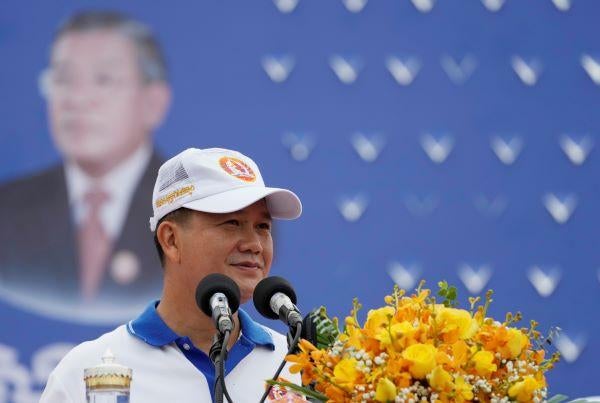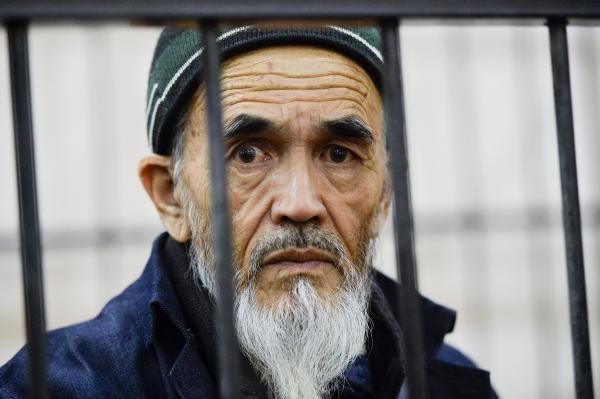Leer la versión en español
Lire la version en français
About the only good thing that can be said about authoritarian regimes is they make no secret of their basic nature. Even when they try to throw on the trappings of democracy, they are almost always so bad at it, it fools no one.
The latest example comes from Cambodia, where this week we’re seeing that classic authoritarian favorite: transferring power from father to son.
After almost four decades in power, Prime Minister Hun Sen is passing the torch to his eldest son, Hun Manet. It’s as obvious as it was unsurprising – this transition has been in the works for years.
The announcement came a few days after the ruling Cambodian People’s Party took all parliamentary seats in a national show they called an “election.” That word has to be in quotation marks, because it wasn’t really a contest. There was no serious competition allowed. Hun Sen was boxing alone in the ring.
In the run up to this “election,” Hun Sen used every repressive tool at his disposal to rid Cambodia of all political opposition. The government harassed and even arrested members and supporters from the only serious possible competitor, the Candlelight Party.
We’ve seen it all before. In the 2018 “election,” Cambodia’s politicized courts simply dissolved the main opposition party ahead of time.
Uncompetitive elections and the handing of power from father to son – the most textbook of authoritarian moves – would be almost comically cliché, laughable even, if the reality in the country weren’t so tragic.
People in Cambodia suffer under draconian laws, and authorities use arbitrary arrests, government-controlled judicial harassment, and violence to silence dissent. Politically motivated mass trials have been held for opposition members and human rights defenders. Cambodia still holds more than 50 political prisoners.
Its authoritarianism is as brutal as it is obvious.







